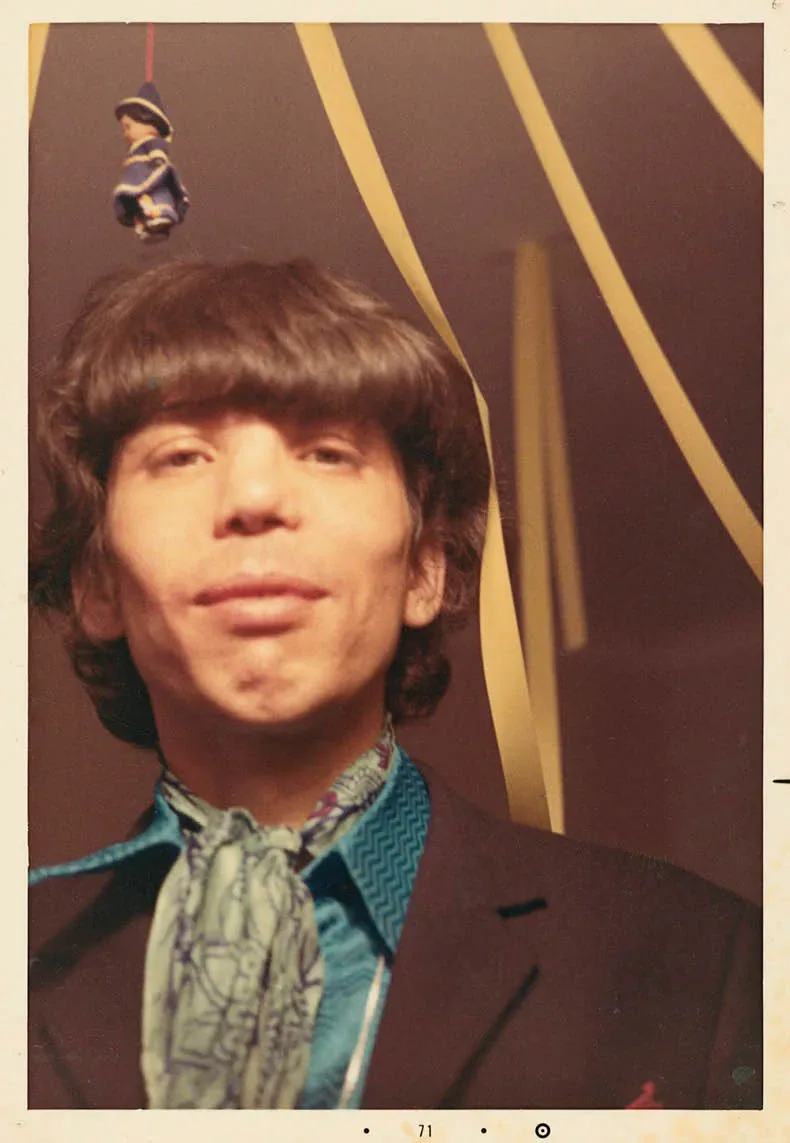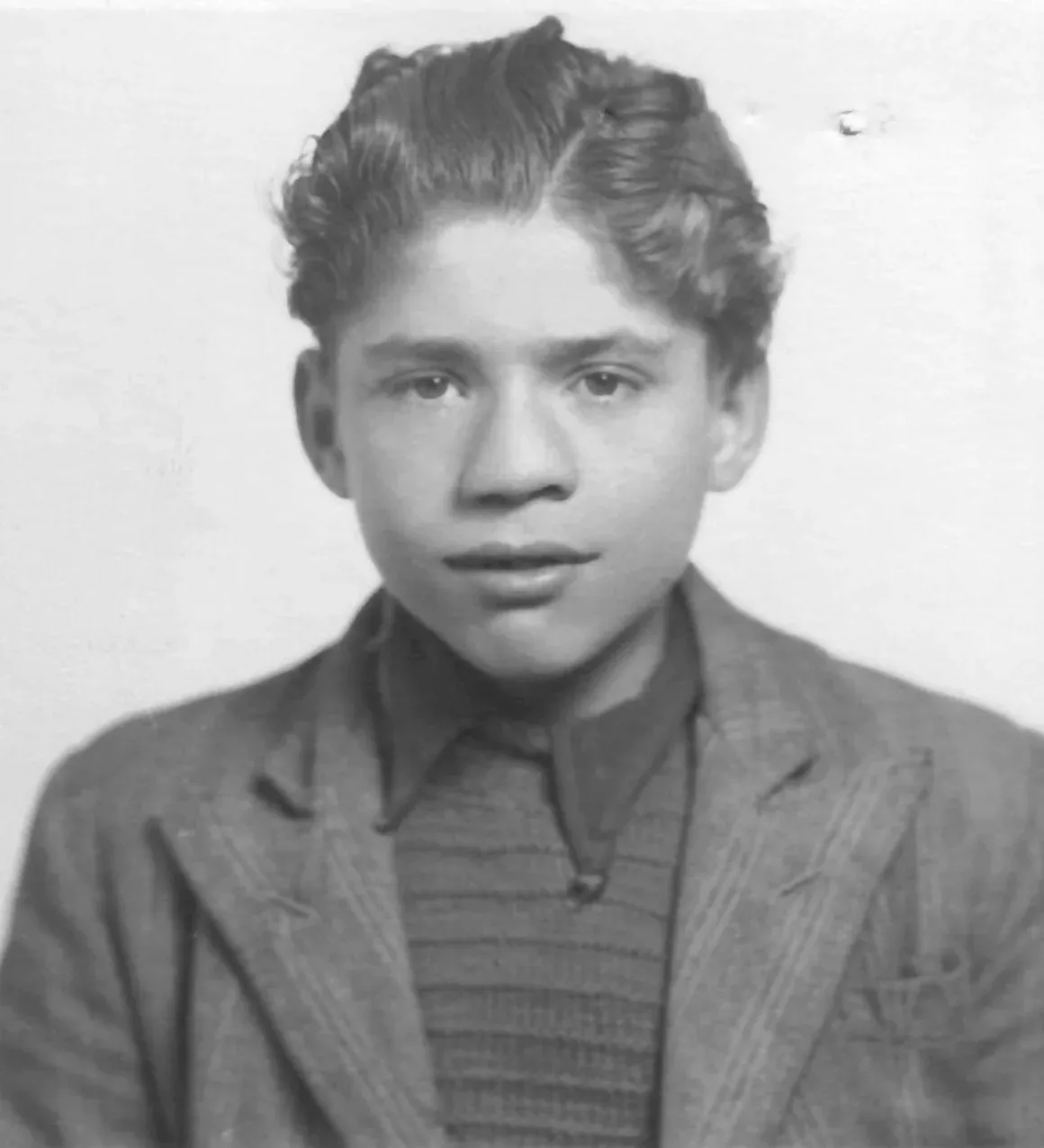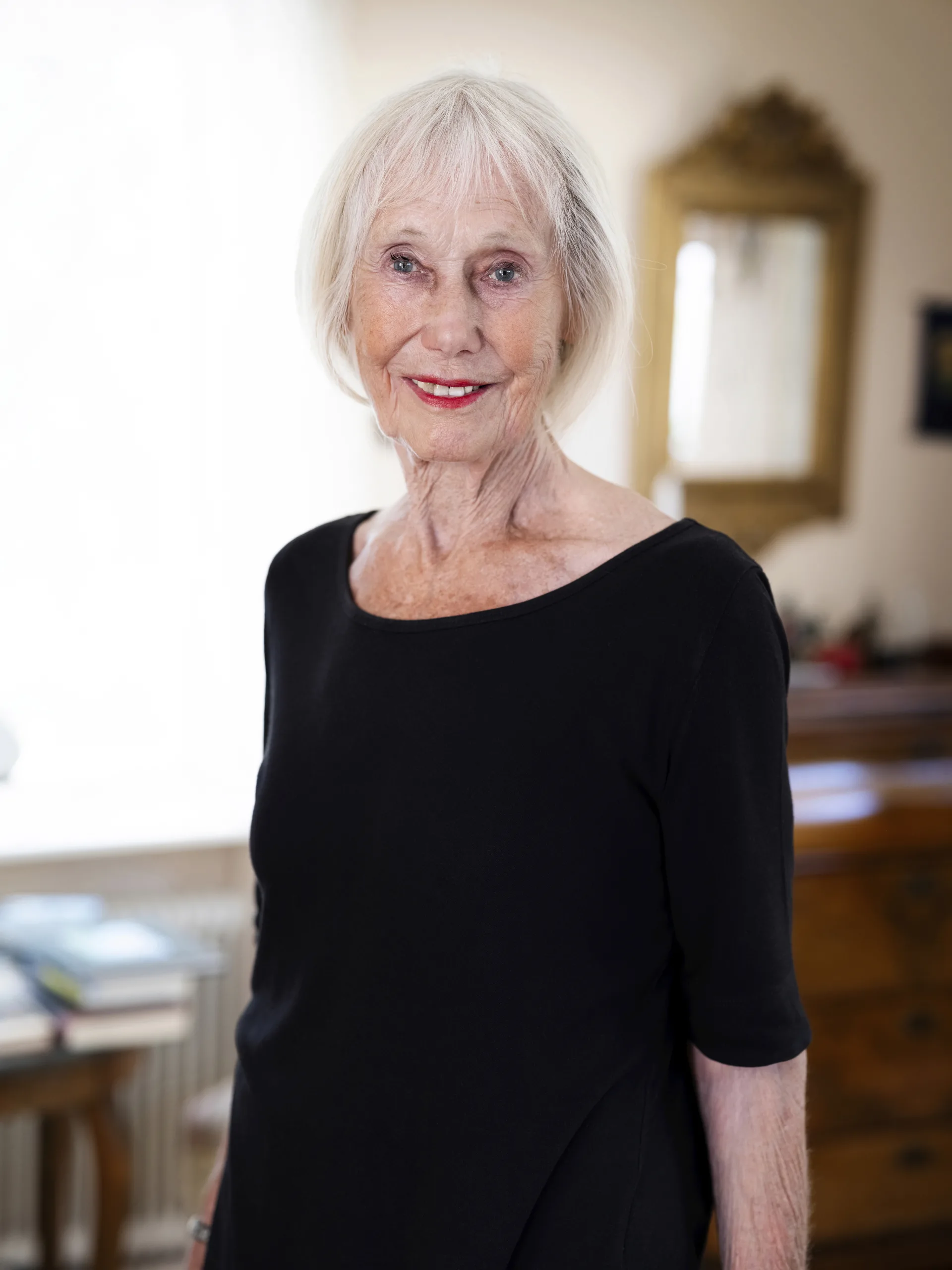Eugen
Eugen came to Sweden in 1969 after a difficult life in concentration camps and a period without any family at all. Margareta welcomed him into her life. Eugen passed away in 2023.

Childhood
Born to young Sinti parents in 1935, Eugen is raised by foster parents outside Berlin. His foster father workes in a factory, and his foster mother is a homemaker. In 1942, Eugen starts school, but that same year, he is registered as a “Gypsy” and issued an ID card with his photo and fingerprints. He is forced to leave school.
Unease spread in the household. Eugen is forbidden by his foster parents to play with other children, as they feares something might happen to him. One evening during dinner, there is a loud knock on the door. Two SS soldiers enteres and hands over a letter. The letter states that Eugen must report to the police station at three o’clock in the morning. His foster mother breaks into tears.
She packs Eugen’s best clothes in a suitcase and a packed lunch in a backpack. As they approach the police station, Eugen begins to cry. He is comforted by his foster father, who is also crying. It was the first time Eugen had ever seen his foster father cry.

Concentration Camp
Eugen is locked in a cell before being transported to a freight train. On the train, there are other children of various ages. During the long journey, the children are given nothing to eat or drink. Many scream, and the atmosphere is filled with panic. When the train arrives at the Friedrichstadt concentration camp, the children are herded into barracks under the threat of being whipped. Dogs bark loudly, and bright floodlights illuminate the camp.
The children are ordered to stand in groups of ten for a headcount. It takes hours before they are allowed to enter the barracks. Any child who collapses or falls asleep is whipped by the soldiers. The next morning, Eugen is given two slices of bread and a bowl of watery soup.
The children are later transferred to the Theresienstadt concentration camp. Adult prisoners receive them, and the children are placed in different housing blocks. In the camps, Eugen is subjected to numerous experiments and is forcibly sterilized.
The Life After the Liberation
When the war is over, Eugen is 10 years old. He is alone like many others who have survived. Together with other children, he wanders around doing everything he can to survive. The children are called "hooligans" because they steal food and instill fear in the villages.
In 1949, Eugen is captured and imprisoned but is later moved to a children's home in East Germany. There, Eugen learns to read and write. At the beginning of 1951, Eugen arrives at a collection camp in West Berlin and finds some relatives on his father's side.
The relatives emigrate to the USA, and the plan is for Eugen to follow. Instead, the now sixteen-year-old Eugen is sent to a new children's home because he is so small for his age. After his time at the children's home, Eugen lives a rootless life around Europe. In 1964, Eugen is sentenced to a longer prison term for assault.
Arrival in Sweden
Eugen arrives by train at Stockholm Central Station in December 1969 with a letter from Margareta and Per-Arne Berglie. All he owns is the suit he was wearing and a change of clothes in his suitcase. Earlier that same year, Birgitta Wolf wrote in the magazine Zigenaren about Eugen's situation in prison and that with his release, he had nowhere to go. Birgitta made a call in the magazine for more people to get involved in Eugen's story. Margareta began to correspond with Eugen and initiated the process with the authorities.
Eugen and Margareta
Eugen is a withdrawn yet talkative person who finds Per-Arne's typewriter and begins writing his life story during the day. The family has many long conversations in the evenings about Eugen's experiences during World War II, as well as life after the peace. Eugen shows his scars from his upbringing and from the concentration camps due to sterilization and experiments.
Eugen enrolls in a folk high school and studies. For seven months, Eugen lives with the family, and during that time, he writes the book as well as articles in Ord och Bild about his experiences during and after the war.
Memories and dealing with feelings of loneliness are something that torments Eugen and come out in various ways. When he is sad or happy, he plays music that thunders outside the house. Eugen meets a Swedish woman whom he marries, and during the 1970s, the couple has two daughters.
Margareta and Eugen keep sporadic contact over the years. At one point, Margareta's daughter calls her, very upset. The daughter says that Eugen is sitting in their living room and that he says he is going to take his life. When Margareta comes home, he is sitting in the living room with a gas can. Margareta drives him to a psychiatric ward.
After that incident, Margareta decides that she can no longer have contact with him. They have sporadic contact through greetings on Christmas cards. In November 2023, Eugen passes away in the city of Dortmund, where he moved in the 1980s, living together in a collective with other Sinti and Roma.
